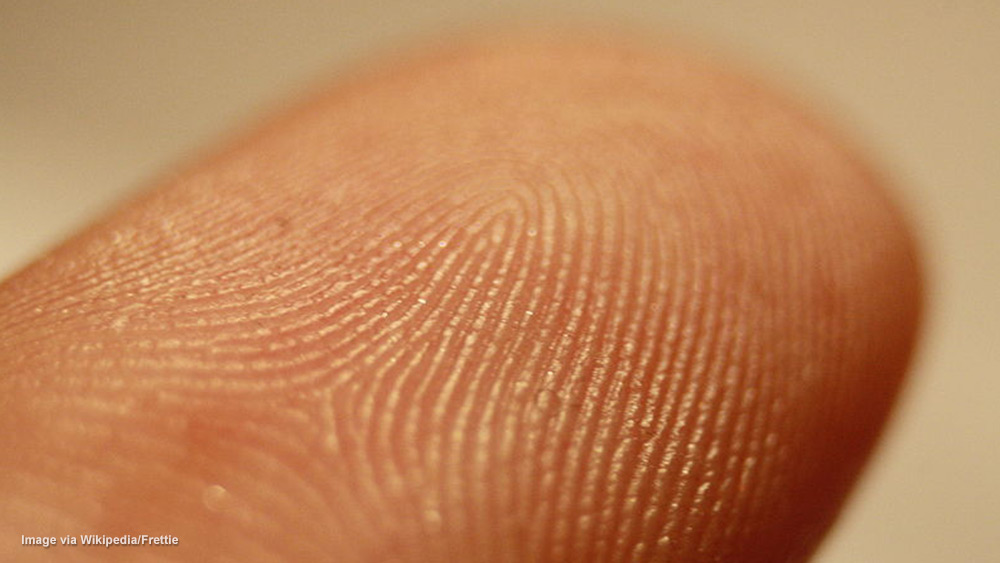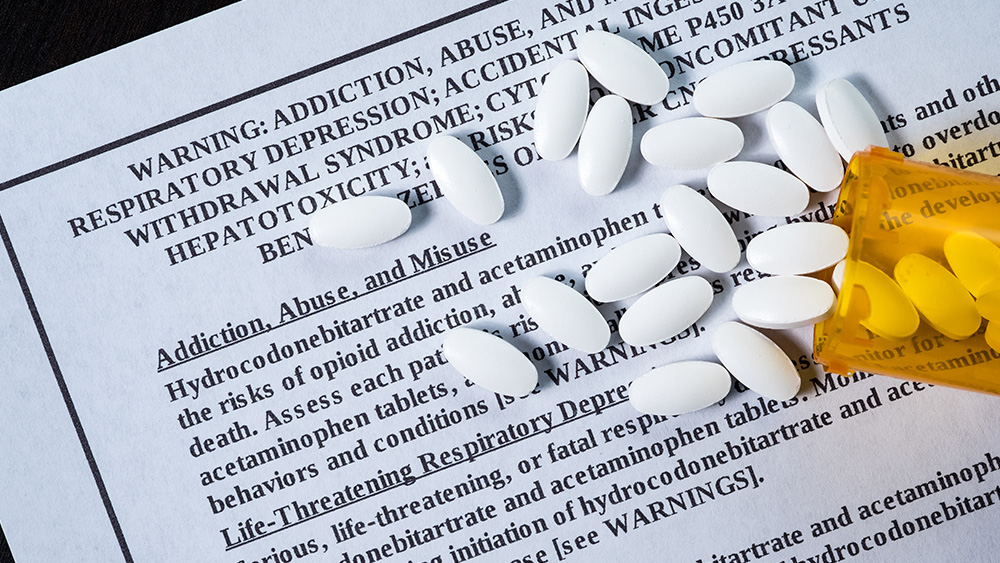Revolutionary drug test can detect 4 classes of drugs from the sweat in your fingerprints — even when you’re dead
01/24/2019 / By Rhonda Johansson

It looks like being dead won’t prevent the cops from knowing if you took drugs. A team from the University of East Anglia recently developed a revolutionary drug test that can detect four classes of drugs via the sweat found in your fingerprint. The creepy (yet kind of cool) part? The technology apparently works on both the living and the dead.
The Intelligent Fingerprint Drug Screening System is a non-invasive fingerprint drug test that will detect the presence of amphetamines, cannabis, cocaine, and opiates from a single fingerprint sample in just 10 minutes. Unlike conventional screening methods that require saliva or urine, this technology is non-bio-hazardous.
The cartridge may help law enforcement officers gain a better understanding of a possible cause of death, especially in difficult cases. The device may also see use in suicide cases, where – too often – victims choose to end their life by overdosing on drugs.
Its developers likewise aim for the device to be used in drug rehabilitation centers and workplaces. There are also talks about using the technology in airport screening and for offender management applications within prisons and probation services.
Writing about their findings in their study published in the Journal of Analytical Toxicology, researcher Dr. Paul Yates enthused that their study “clearly demonstrate[s] how [their] non-invasive fingerprint screen is simple to use, hygienic and offers an ideal complementary screening approach for the growing number of sectors that require a rapid and flexible drug test.”
Got your spell on me, baby
Different drugs affect your body in different ways. These effects can vary from person to person; however, the effects are dependent on a variety of factors such as body size, general health, the amount and strength of the drug, and if you took the drug with other substances at the same time. It is important to note that illegal drugs are not controlled substances so the strength and quality of each batch may differ from one another.
Regardless, all drugs have short- and long-term effects. One of the most dangerous long-term effects is dependency. Some people enjoy the after-effects of the drugs they take (whether it is a physical feeling or an emotional rush), and decide that they “cannot live normally” without their drug of choice. (Related: Cocaine and other illegal drugs are so common that 13% of us have traces of it on our fingers (even if we don’t use it).)
As the drug runs through your system, traces of it will be found in your bodily fluids. This is why drug tests usually take a sample of either your saliva or urine.
Some common drugs and their effects
Different illegal substances work differently within the human body.
Cocaine
This drug binds to the dopamine transporter, blocking the removal of the neurotransmitter from the synapse. Dopamine then accumulates and produces an amplified signal to the receiving neurons. This causes a dramatic shift in energy. Users say that they immediately feel happy, awake, confident, and less inhibited. Unfortunately, this feeling does not last long, and users typically have to keep on taking cocaine to get the same “high.”
Ecstasy
Known as the “love pill,” ecstasy heightens the perception of color and sound and (supposedly) amplifies the sensations of touch, especially during sex. According to a 2007 National Survey on Drug Use and Health, an estimated 12.4 million Americans aged 12 and older have tried ecstasy at least once in their life.
Ecstasy can cause hallucinations and psychosis.
Ice
This is a potent form of the stimulant drug methamphetamine, and is also referred to as shabu, crystal, or crystal meth. Ice reportedly provides an immediate high — users say that it takes as little as 20 minutes to feel its effects. These effects include a feeling of intense pleasure and clarity. Nevertheless, continual use of the drug can make the user excessively grind their teeth, scratch their skin, and engage in dangerous sexual activities.
To learn more about the effects of drugs on the body, visit Addiction.news.
Sources include:
Tagged Under: addiction, biotechnology, breakthrough, dangerous drugs, drug detection, drugs, fingerprint, future tech, innovation, science and technology, Sweat



















